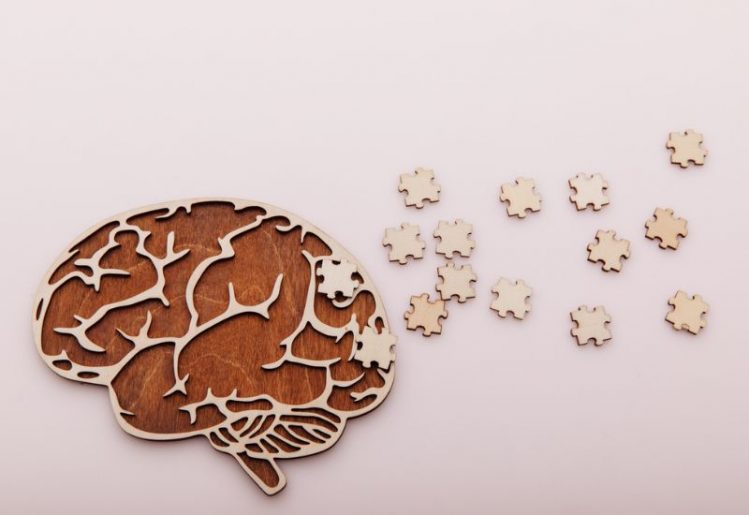Brain Health Awareness Among Women is Lacking: Here's What You Need to Know
Many women lack adequate brain health awareness, even though they are at a greater risk for Alzheimer's disease. If you are a woman, it's important to learn what you can do to lower your risks.
Alzheimer's Disease: What is It?
 A common condition that adversely affects brain health is Alzheimer's disease, a common form of dementia. When this type of cognitive decline occurs, people experience memory loss, confusion and a loss of mental clarity. It's most likely to occur in seniors who are 60 years of age or older, but early-onset Alzheimer's can affect young adults in their 30s and 40s.
A common condition that adversely affects brain health is Alzheimer's disease, a common form of dementia. When this type of cognitive decline occurs, people experience memory loss, confusion and a loss of mental clarity. It's most likely to occur in seniors who are 60 years of age or older, but early-onset Alzheimer's can affect young adults in their 30s and 40s.
The cognitive decline in people with Alzheimer's occurs as the result of physical and chemical changes in the brain. Research has found that the condition is more likely to occur when clumps of protein called amyloid plaques form in the brain. These clumps are usually accompanied by the formation of fibrous bundles, which are called neurofibrillary tangles.
The accumulation of amyloid plaques and neurofibrillary tangles interfere with the brain's ability to send messages to the central nervous system via neurons in the brain. This is why the ability to communicate, think logically and socialize with others becomes inhibited.
Symptoms of Alzheimer's Disease
While a diagnosis from a doctor is necessary to start treatment for Alzheimer's disease, knowing the most common symptoms of this disease will help you recognize when you should seek medical attention. Some of these symptoms include:
- loss of memory, such as forgetting appointments, locations and events
- trouble with math, including having trouble balancing a checkbook
- loss of judgment, such as wearing inappropriate clothes
- forgetting to perform basic tasks, including bathing and preparing meals
Someone with Alzheimer's disease is also likely to experience personality and behavioral changes. They may seem more withdrawn, wander aimlessly or lose contact with close friends. As more of these changes occur, the individual should seek medical care.
The Importance of Brain Health Awareness for Women
While any adult can develop Alzheimer's disease, the condition is significantly more likely to occur in women. In fact, nearly two-thirds of all Alzheimer's patients are women. This situation is exacerbated by the fact that few women are aware of the increased risks they face. Overall, women lack sufficient brain health awareness to protect themselves.
According to a Cleveland Clinic study, 82 percent of women don't know that their risk factors are higher for developing this common form of dementia. This is an area of concern since there are certain lifestyle changes women could make to reduce their risks for developing Alzheimer's disease if they knew the risks.
Some Alzheimer's risk factors can't be changed. For example, genetics does play a small role in determining who will develop the disease. Menopause is another factor that can't be changed. As women go through menopause, the change in hormone levels increases their risks for the disease.
Making lifestyle changes early in life can positively change the risks for developing the disease. Here are a few risk factors that can be addressed to minimize your risks for Alzheimer's disease:
- obesity
- sedentary lifestyles
- smoking tobacco products
- hypertension
- high cholesterol
- untreated type 2 diabetes
What Women Can Do to Reduce Risk of Alzheimer's Disease
Making brain health awareness a priority in your life can help you change many of the risk factors for Alzheimer's disease. Since physical health is closely linked to cognitive health, you can significantly reduce your risks for cognitive decline and dementia by living a more active life. Following are a few specific examples of ways to reduce your risks for developing Alzheimer's disease.
Reduce Your Commute Time
If you can reduce how much time you spend in traffic, you can lower your risk for Alzheimer's. Research has found that breathing exhaust fumes raises the risks for this type of cognitive decline. Try commuting less or take a position that lets you work from home a few days each week.
Consume Less Alcohol
Frequent alcohol consumption alters your brain's functioning and increases your risk for this type of dementia. People who drink alcohol in greater quantities or more frequently have a greater risk for early-onset dementia.
Take a Daily Supplement
In addition to limiting bad habits, you can proactively protect your brain with a high-quality dietary supplement. For example, Neurochron contains vitamins and nutrients that are known to positively impact brain health. Ensuring you get enough of these nutrients each day will help you maintain stronger cognitive functioning.
Get Help for Sleep Disorders
Sufficient sleep is a significant issue in brain health awareness since poor sleep directly impacts cognitive functioning. Women who don't fall asleep quickly or have trouble staying asleep throughout the night face greater risks for dementia and other types of cognitive decline. If reducing your intake of caffeine and engaging in relaxation techniques doesn't help, consult a doctor about getting a better quality of sleep.
Switch to a Healthier Diet
 You can attack several risk factors at once simply by adopting a healthier diet. Reduce your intake of sugar and trans-fat. Two-thirds of each meal should consist of fruit, vegetables, nuts and seeds. Stop consuming processed meat and switch to lean cuts of red meat, poultry and fish.
You can attack several risk factors at once simply by adopting a healthier diet. Reduce your intake of sugar and trans-fat. Two-thirds of each meal should consist of fruit, vegetables, nuts and seeds. Stop consuming processed meat and switch to lean cuts of red meat, poultry and fish.
Get More Exercise
Physical activity is also a significant factor in reducing your risks for Alzheimer's disease. This doesn't mean you have to go to the gym every day. Instead, look for activities you enjoy. Go running, hiking, swimming or bicycling. You can also take up sports, such as tennis or golf. Have fun to stay motivated.
While the idea of developing Alzheimer's disease is unnerving, there are plenty of things you can do to lower your risks. Schedule regular health checkups and follow your physician's advice for living a healthier life. Additionally, maintaining better brain health awareness and keeping an active mind will also help you lower your risks of developing Alzheimer's disease.




